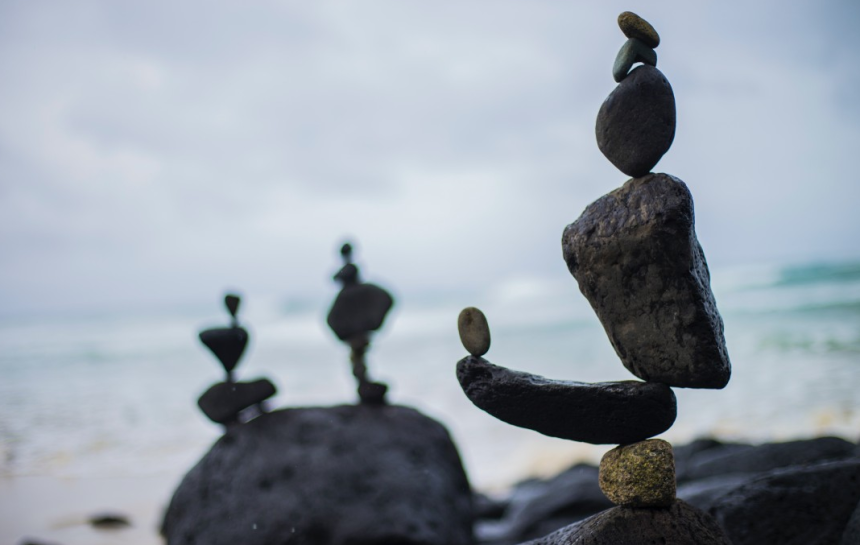In the intricate dance of existence, where every step holds the potential for either growth or destruction, life often presents us with two seemingly harmless companions: confusion and comfort. Like the twin faces of Janus, they stand at the threshold of our choices, each capable of leading us toward a path of enlightenment or entrapment. Yet, when indulged beyond necessity, these allies transform into adversaries, subtly yet surely steering us toward peril.
Confusion, in its purest form, is not a vice. It is the mist that rises at dawn, obscuring the path ahead but also inviting us to pause, reflect, and seek clarity. It is the gap between what we know and what we must learn, the space where questions sprout and wisdom blooms. Confusion pushes us to seek, to challenge, and to evolve.
Renowned Kashmiri poet Zinda Kaul, also known as Masterji, once wrote, “The fog of confusion, if allowed to settle, obscures the light of wisdom, but when embraced as a step in the journey, it becomes the dew that nourishes the seeds of knowledge.” However, when confusion lingers too long, it becomes the fog that never lifts, suffocating our sense of direction. Like a ship lost at sea, we find ourselves adrift, with no compass to guide us. The mind, overwhelmed by possibilities and contradictions, becomes a prisoner of indecision. This prolonged uncertainty can erode our confidence, paralyze our actions, and ultimately lead us to surrender our agency to external forces.
Metaphorically, confusion can be likened to a garden where weeds are allowed to grow unchecked. Initially, they may seem harmless, perhaps even beautiful in their wildness. But as they multiply, they choke the life out of the flowers, turning the garden into a tangled wilderness. The gardener, overwhelmed by the task of weeding, may abandon the garden altogether, resigning themselves to chaos.
Comfort, on the other hand, is the gentle embrace of a warm bed on a cold night, the assurance of safety, and the pleasure of familiarity. It is the reward we seek after a hard day’s work, the sanctuary where we find peace and restoration. Comfort is necessary, for without it, the soul becomes weary, the spirit brittle.
Kashmiri mystic Lal Ded has poignantly expressed, “Comfort is the veil that blinds the soul to its higher calling; in its embrace, we forget the journey and remain tethered to the ground.” Like the sweet nectar that lures the bee to the flower, comfort can be intoxicating. When indulged beyond necessity, it breeds complacency, dulling the edge of ambition and curiosity. The soft bed becomes a trap, the cozy room a prison. The once vibrant mind, now lulled by ease, resists the discomfort of growth, choosing instead the predictable rhythm of the known.
In this metaphorical garden, comfort is the overgrown vine that wraps itself around the tree, suffocating its growth. The tree, content in its embrace, stops reaching for the sky, content with the shade and security of the vine. But in doing so, it sacrifices its potential, its innate drive to reach the heavens.
Excess, whether in confusion or comfort, is the silent thief of life’s vibrancy. It robs us of the balance that is essential for our growth and fulfillment. Just as a plant needs both sunlight and shade, water and air, to thrive, so too do we need both; challenge and rest, clarity and mystery. When one dominates the other, the delicate equilibrium of life is disrupted.
As Habba Khatoon, the Nightingale of Kashmir, once mused, “In the excess of the familiar, the soul forgets to seek the new; in the excess of uncertainty, the spirit loses its way.” Consider the image of a tightrope walker, balanced precariously above a yawning chasm. To move forward, they must keep their eyes on the end goal, their mind focused on the task, and their body in perfect harmony. Confusion, if it creeps in, causes hesitation, a misstep that could lead to a fall. Comfort, if it overpowers, lulls the walker into a false sense of security, causing them to lose their edge, their vigilance.
Life, like the tightrope, requires us to navigate between extremes, to find that elusive middle path where we can thrive. But in a world that often glorifies excess, where confusion is mistaken for complexity and comfort for success, this balance is harder to maintain.
The wisdom of ancient sages often spoke of the “Golden Mean,” the idea that virtue lies not in extremes but in moderation. In a world where confusion and comfort threaten to overwhelm, this ancient wisdom is more relevant than ever.
Sheikh Noor-ud-din Noorani, also known as Nund Rishi, the revered saint of Kashmir, taught, “The path to truth is narrow, not for the faint-hearted, but for those who balance desire and renunciation, clarity and mystery.” To embrace the middle path is to acknowledge the role of both confusion and comfort in our lives, but not to be dominated by either. It is to recognize that confusion is a signpost, not a destination, and that comfort is a resting place, not a home. The challenge lies in discerning when to let go of confusion and seek clarity, and when to step out of comfort and embrace the challenge.
In the metaphorical garden of life, the middle path is the careful pruning of both weeds and vines, allowing flowers to bloom and trees to reach their full height. It is the gardener’s art of knowing when to water and when to let the soil dry, when to nurture, and when to allow nature to take its course.
Ultimately, life is a dance of opposites, a perpetual balancing act where we must learn to navigate the ebb and flow of different forces. Confusion and comfort are but two of these forces, each with its own role to play in our journey. Yet, when allowed to exceed their bounds, they become dangerous, leading us away from our true path.
The art of living lies in mastering this dance, in knowing when to linger in the comfort of the familiar and when to venture into the unknown, when to allow confusion to spur our growth and when to seek the clarity that will guide our steps. In doing so, we learn to live not in fear of these forces, but in harmony with them, embracing the delicate balance that is the essence of life.
(Author is a columnist and can be reached at: [email protected])








